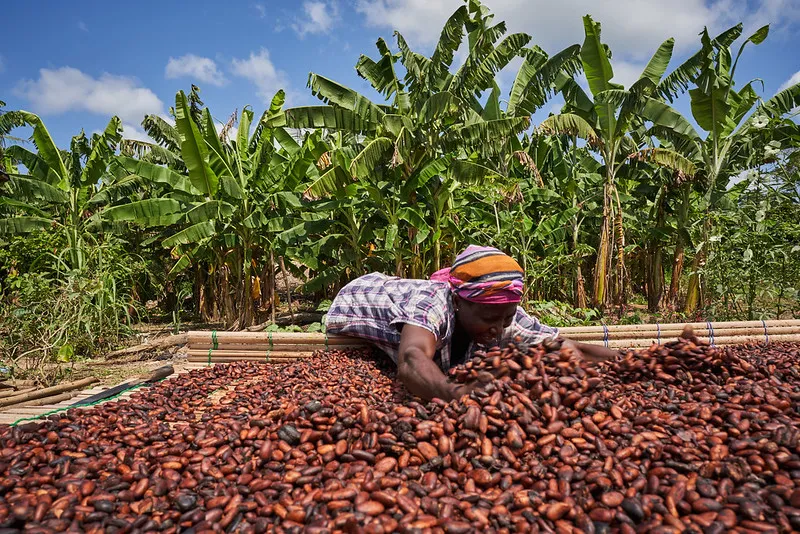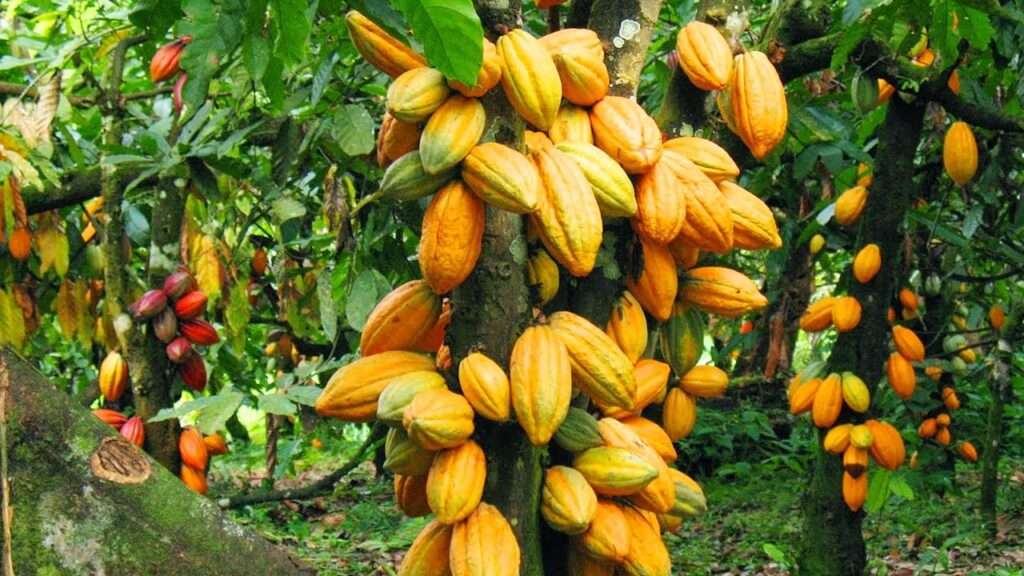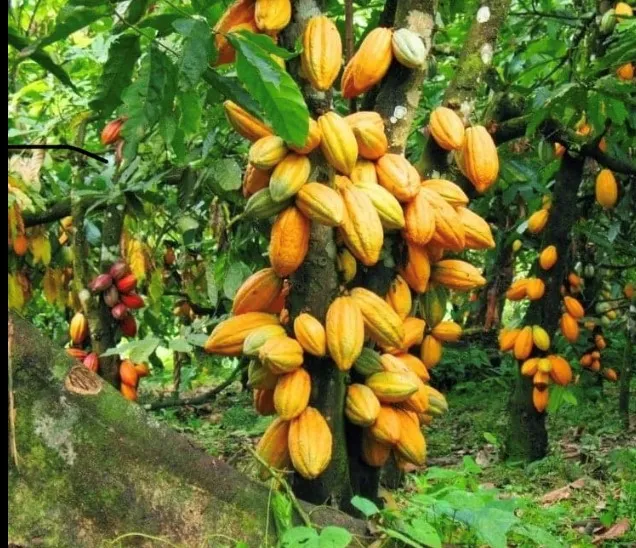Cocoa price reforms implemented by the government have come under scrutiny and defense in equal measure, with Hon. Eric Afful, Member of Parliament for Amenfi West and Chairman of Parliament’s Economic Development Committee, offering clarity on how current cocoa pricing is improving the welfare of Ghanaian farmers.
Amid political debate over the real impact of the latest producer price, Afful argued that the figures reflect a comprehensive improvement in both local currency value and farmers’ purchasing power.
According to the MP, the adjustments made under the National Democratic Congress (NDC) administration reflect a substantial shift in the distribution of the Free on Board (FOB) value of cocoa.
He explained that a deduction of GH¢366.25 per bag—equal to GH¢5,860 per ton when multiplied by 16—has been made in the share allocated to the Ghana Cocoa Board, resulting in a larger portion being returned directly to farmers.
“Friends of the media, cocoa farmers will also enjoy the favorable economic conditions in the country. The value of Ghana’s cedi has appreciated, so it means that for a bag of cocoa to cost 3,228.75 Ghana Cedis, the farmer can buy more goods and services as per what is pertaining in the country, than in 2024. Because the price of goods and services is down.”
Hon. Eric Afful

This situation, he said, means farmers are in a better position overall, even if nominal increases appear moderate.
In defending the logic behind the current pricing structure, Afful made comparisons with earlier years under the New Patriotic Party (NPP) administration.
According to him, if the cedi had depreciated to GH¢16 to the dollar—an exchange rate previously used for calculations—a bag of cocoa would have been priced at GH¢5,040.
However, due to the current strength of the cedi, the price of GH¢3,228.75 offers greater domestic value to the farmer, despite appearing lower when converted.
New Cocoa Price Brings Big Benefits
Hon. Eric Afful also outlined the calculations behind the new cocoa price. For the 2025–2026 main crop season, the FOB price per ton has increased significantly to $7,200 from $4,850 during the 2024–2025 season.
This marks an additional $2,350 in earnings per ton, which translates into approximately $450 per bag—a substantial improvement for cocoa producers.
When this FOB value is converted into cedi terms, it equates to GH¢4,612.50 per ton. Hon. Afful explained that under the new policy, 70% of that value—amounting to GH¢3,228.75—is passed on to farmers as the producer price.

This proportion not only reflects a major reform but also attempts to ensure that cocoa farmers directly benefit from international market gains.
“Ladies and gentlemen… what we are saying is that, despite all these challenges, the Ghana Cocoa Board is delivering.”
Hon. Eric Afful
He pointed out that the policy reforms are designed not only to stabilize farm incomes but also to increase transparency in how cocoa revenues are shared among stakeholders in the value chain.
He added that these gains are being made even in the face of constraints such as global market volatility, input cost increases, and climate-related production risks.
Yet, the government has maintained a strong commitment to ensuring that the gains in international market prices are fairly distributed to the people whose labour drives Ghana’s cocoa economy.
The MP’s remarks also come as opposition voices raise concerns about whether the current pricing structure truly reflects the best interests of farmers. Critics argue that, in dollar terms, farmers may be receiving less than promised or expected.
However, Afful maintained that in real economic terms—factoring in inflation, currency appreciation, and market purchasing power—the average cocoa farmer is in a more favorable position than they were in previous years.

He called on media stakeholders and the general public to carefully assess the broader context in which the cocoa price decisions are made, including economic indicators and the evolving performance of the cedi.
According to him, any assessment of the farmer’s condition must go beyond nominal pricing and take into account the tangible economic advantages created by the new policy framework.
Ultimately, Afful concluded that the government’s approach to cocoa pricing reflects a balance of fairness, economic sustainability, and responsiveness to both local and international market conditions.
By aligning producer prices with real exchange rates and market realities, the administration hopes to secure long-term gains for Ghana’s critical cocoa sector and its over 800,000 farmers.
READ ALSO: 40% Cedi Surge Leaves Diaspora Cash Flow in Freefall – Near 50% Dip in Remittances



















